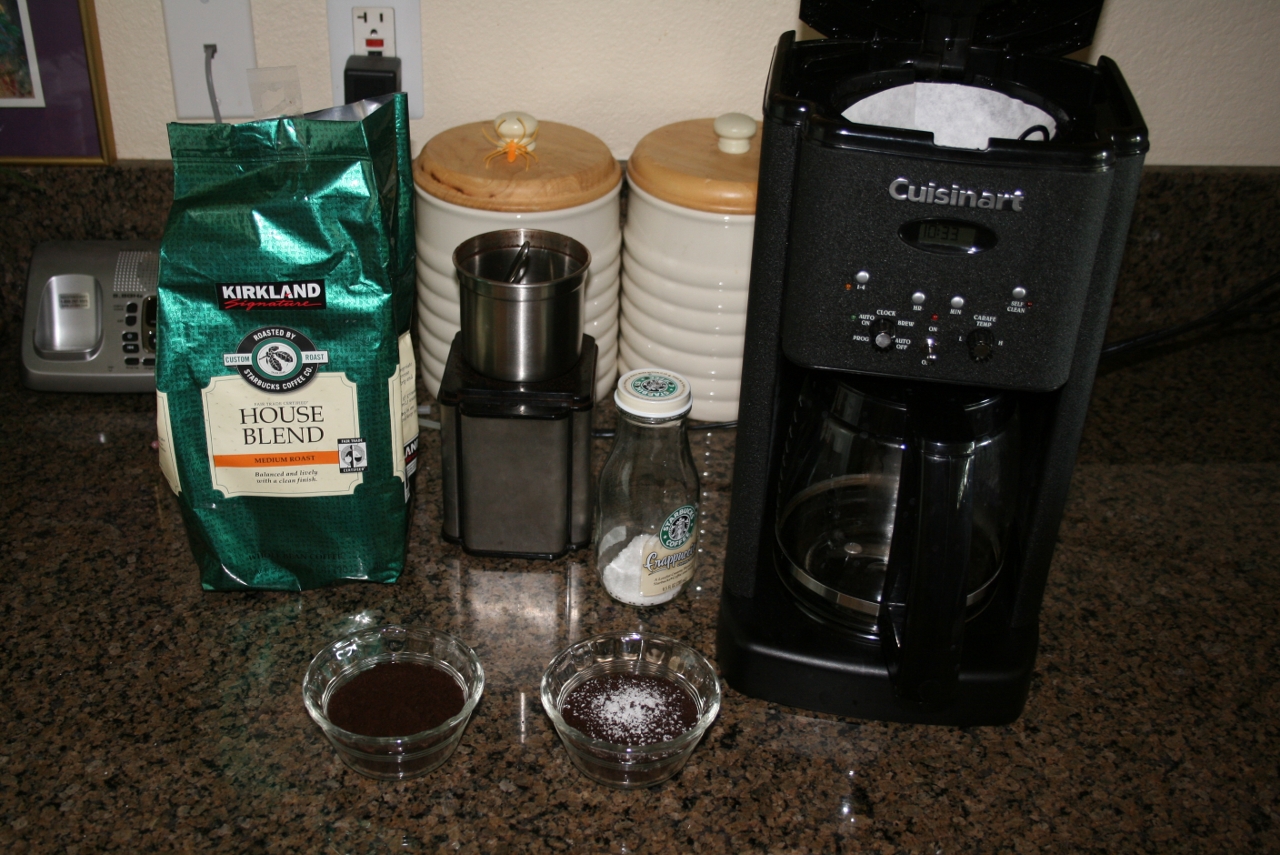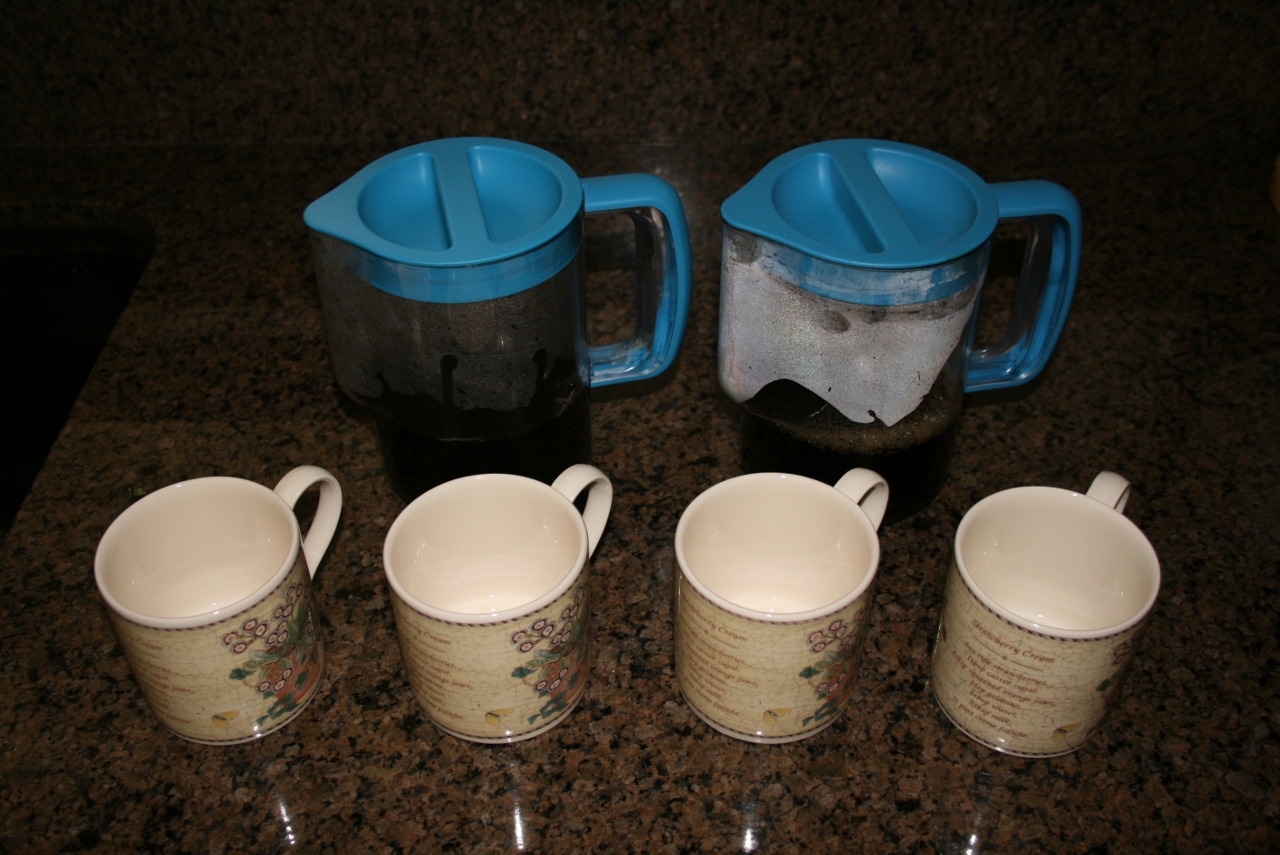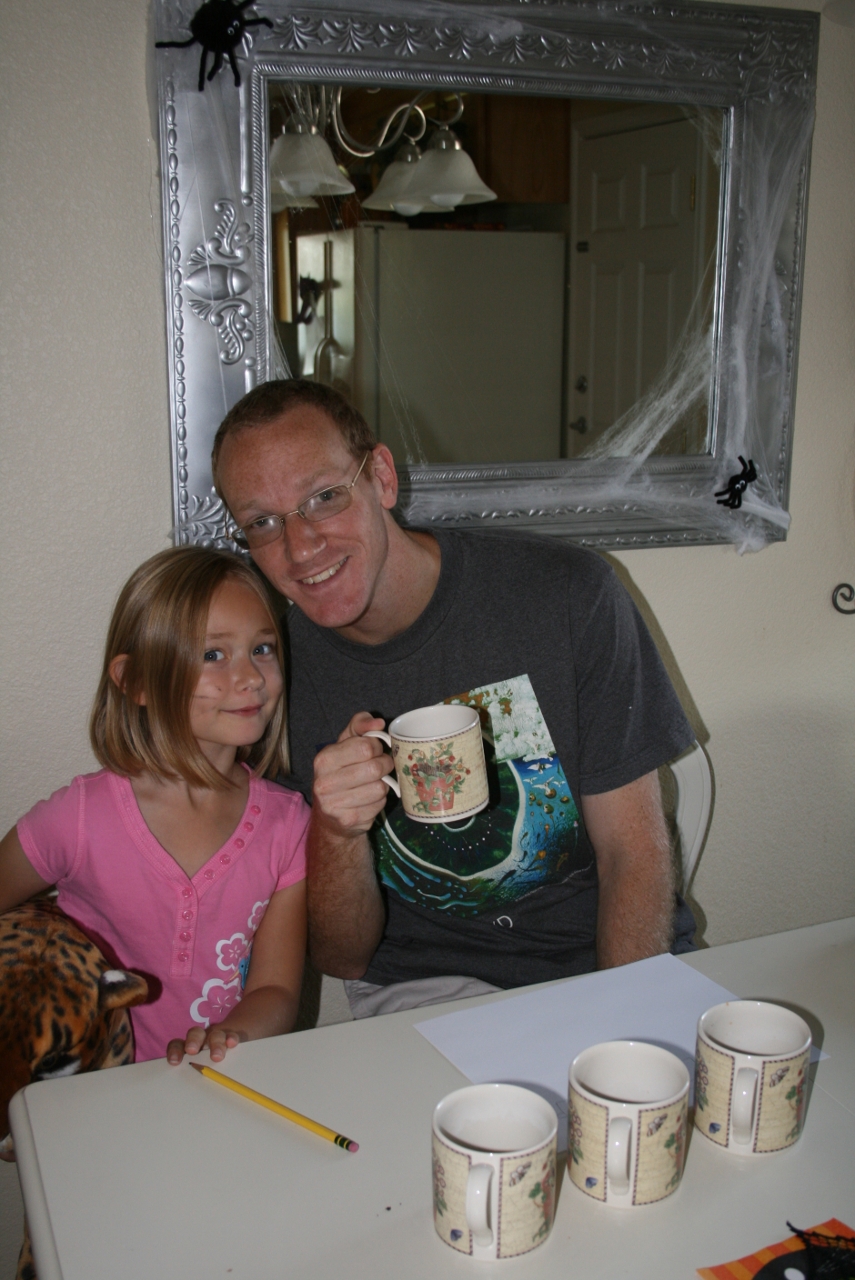the coffee experiment
2009-11-01
Step 1: The Question
Background: I was watching a new episode of Good Eats (Season 13, Episode 7) and Alton Brown was going over a good coffee recipe he called “Man Coffee”. It had a decent ratio of grounds to water, a coarse grind, and he employed the use of a French Press. Then, to my surprise, he added a bit of Kosher Salt.
So, being the unapologetic AB fan that I am, I decided to see how the addition of salt would taste. I had it on my coffee over the last two weeks, off and on, and I decided that I liked the additional flavor. Michele was skeptical, and didn’t think I could actually tell the difference and it was all in my fan-boy head. I admitted this was a likely scenario, and as a good scientist I have to be honest with the data; and that is the Placebo Effect does have a measurable outcome. So, I told her that I would do a blind taste test and see if there was any noticeable flavor in salted coffee.
So, the question is: Can I taste the difference between regular coffee, and coffee brewed with kosher salt.
Step 2: Research
I did a little google-ing about why people put salt in their coffee. The consensus seemed to be that it can help take away the bitterness, however, if you use enough coffee grounds you should not taste any of the acidic bitterness. Coffee becomes bitter for two reasons:
-
the essential oils are washed away during the extraction process, leaving the acidic compounds (those coffee compounds are volatile, so you also have to grind the beans and brew them quickly!)
-
the coffee is left on a burner longer than it should
Okay, there are more than two, but I’m not a barista or a chemist so that is all I can cover :)
I normally grind and brew immediately, and I use about 6 tablespoons for 4 cups of coffee which is “a lot”. I think I avoid the common bitterness pitfalls, and adding salt (to me) just seemed to add more body to the coffee.
The test is only to answer the question about detection, and not if it enhances the coffee’s flavor. That would have to be another trial, and I would need more voulenteers and cups…
Step 3: Propose a Hypothesis
I hypothesize that a pinch of salt to the coffee grounds does add a noticeable effect.
That is pretty straight-forward
Step 4: Test with an Experiment
I decided on a regular blind taste test. I wanted to do a double blind test, however, since I was the subject and Caralyne can’t make coffee, Michele had to brew and pour the samples. I also had to settle for 4 cups (those were the only clean and similar cups we had), I wanted a dozen at least so I would have a large enough sample size.
The problem with this test is that both Michele and I are biased; she knew which cup had what, and I knew what the test was about and what I was looking for in the coffee.
The test is simple, I ground up about 12 tablespoon’s worth of Kirkland Coffee.
Materials used.

todo
I put 6 in a cup with a pinch of salt, and 6 all alone. Each one was brewed with the same coffee maker, with 4 “cups” of water and poured into identical plastic pitchers.
Containers and Sampling cups

todo
Michele labeled the tasting cups, and I sat down to have a taste of each one, marking which ones I liked more than the others.
Start your day off with a good cup of SCIENCE!

todo
Step 5: Analyze Results, Draw a Conclusion
After my 4 samples, Michele and I both decided that there was a difference in taste, and I did prefer the one with salt. She didn’t like either, but that is normal since she doesn’t like the strong coffee I make anyway (she calls it “Cat Pee coffee”, which makes me think of Tiger Brand Coffee:
Tiger Brand Coffee is a real treat, even tigers prefer a cup of it to real meat
).
Conclusion
The salt does add flavor, so this is almost like me drinking a Holiday Spice or Hazelnut coffee. It’s not real untampered coffee, but it is a nice treat. I also tend to drink more water in the morning when I have it, so thats not a bad thing since coffee is a diuretic.
I’d like to acknowledge
-
Alton Brown and his excellent show Good Eats
-
Science Buddies dot org for their excellent page on The Scientific Method
-
Wikipedia for their articles on Blind and Double Blind Testing
-
My good friend and co-worker, Jenny, for giving me some great ideas on how to help narrow the test down to get useful results.
-
Mr Swarm, my 7th grade science teacher at Park Jr. High, who introduced an entire class to the Scientific Method and let us perform real experiments with fire and food.
-
The Skeptics Guide to the Universe, a great science podcast that teaches me the difference between “theory” and “hypothesis”
Have a Scien-tastic day!